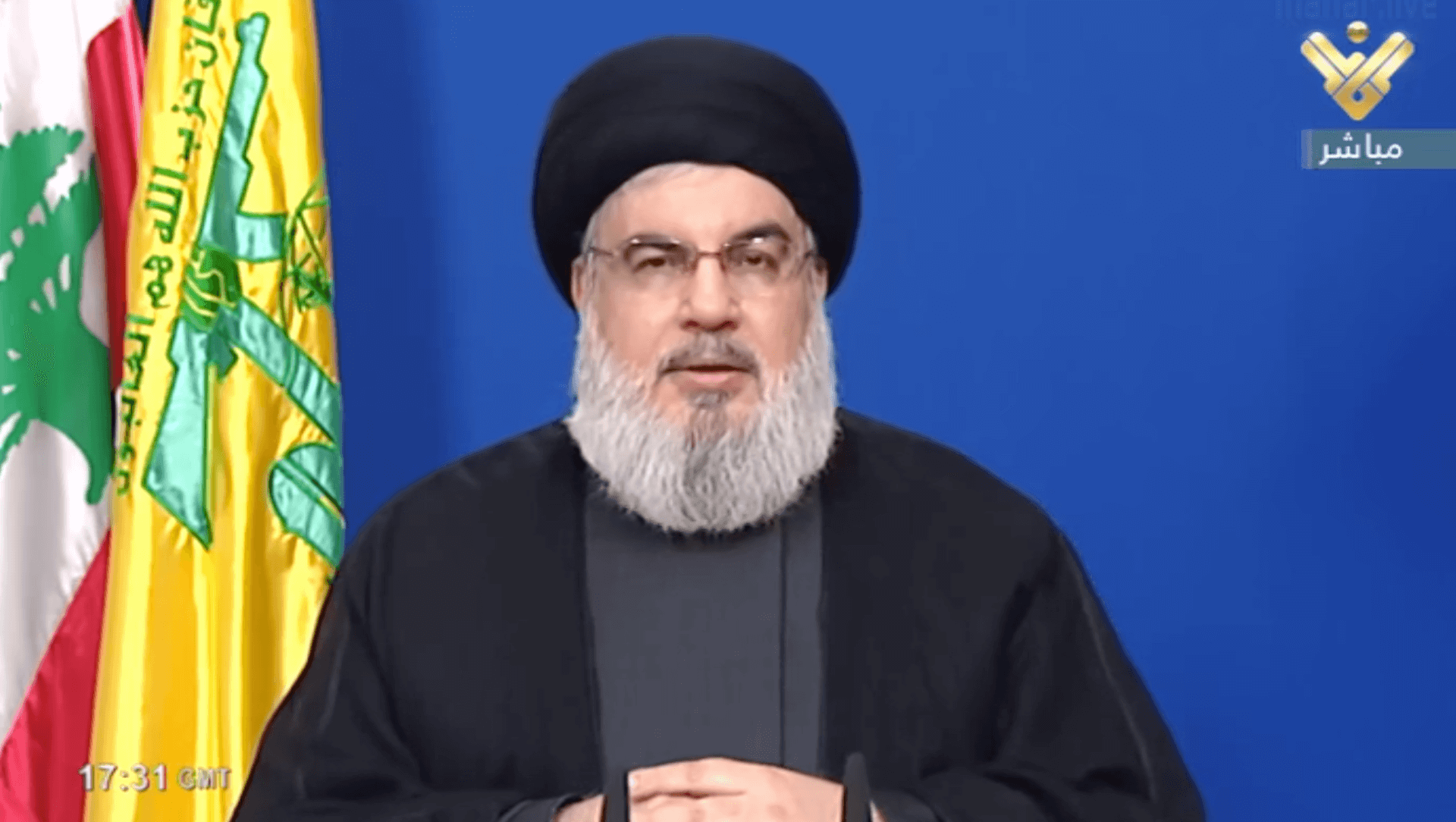Hezbollah chief Hassan Nasrallah has vowed to retaliate against Israeli airstrikes in southern Lebanon and warned that it could escalate its actions in the future. Nasrallah’s comments come after Israeli jets struck Hezbollah positions in Lebanon after the group fired 19 rockets into Israel on Friday, its heaviest barrage since the 2006 Lebanon war.
“We wanted to tell our Israeli enemy that any airstrike against Lebanon will absolutely be met with a response—but in an appropriate, proportional way,” Nasrallah said on Saturday in a televised speech. However, he cautioned that the current situation was dangerous for the region and said that Hezbollah does not seek escalation with Israel. “What happened over the past few days was a dangerous development, something that has not happened for 15 years,” Nasrallah noted.
The exchanges began on Wednesday when unknown militants fired rockets into Israel from southern Lebanon. Israel retaliated with airstrikes and artillery fire, targeting rocket launching sites in Lebanon. On Friday, Hezbollah responded to the strikes by launching 19 rockets into Israel. The Israeli Defence Forces (IDF) struck the group’s military posts in response.
WATCH: More than 10 rockets were fired from Lebanon into Israel, most of which were intercepted by The IDF Aerial Defense System. pic.twitter.com/tRlG7MCe0J
— Israel Defense Forces (@IDF) August 6, 2021
Nasrallah claimed that Hezbollah had chosen an open area near the Shebaa Farms in northern Israel to avoid civilian casualties. “We chose the farms because it is a military zone without any civilians or farmers. There are other open areas with agricultural workers—we chose everything precisely,” he said.
The Times of Israel mentioned that although no severe casualties were reported on both sides, medics treated several Israeli residents in the north for anxiety attacks.
Also Read: Israel Shells Southern Lebanon After Militants Launch Rockets
On Sunday, Israeli Prime Minister (PM) Naftali Bennett said he holds the Lebanese government responsible for any attacks originating from its soil. “The country of Lebanon and the army of Lebanon have to take responsibility (for) what happens in its backyard,” Bennett told his cabinet. He said that “it is less important to us” whether Palestinian factions or Hezbollah carries out the attacks, adding that “Israel will not accept firing at its territory.”
Similarly, Defence Minister Benny Gantz warned the Lebanese government and Hezbollah on Friday that Israel was prepared to make Lebanon’s already dire situation worse if attacks continued. “We do not intend to let Hezbollah toy with us, and Hezbollah knows this. Lebanon’s situation is shaky. We can make it even shakier,” Gantz said. “We recommend that Hezbollah, the Lebanese army, and the Lebanese government don’t test the State of Israel,” he added.
Meanwhile, according to reports, members of the Druze community in southern Lebanon detained a truck “carrying rockets to be launched into Israel” and attacked the Hezbollah members in the vehicle. Some in Lebanon argued that Hezbollah is deflecting attention from Lebanon’s ongoing economic and political crisis by attacking Israel.
Lebanon faces an unprecedented economic and political crisis following last year’s devastating blast at the Beirut Port, which resulted in more than 200 deaths and about $15 billion in economic losses. The World Bank has called the country’s financial crisis one of the worst the world has witnessed in over 150 years.
On Friday, United States (US) State Department Spokesperson Ned Price said that the US condemns Hezbollah’s rocket attacks into Israel in the strongest terms. “This violence puts Israelis and Lebanese at risk and jeopardises Lebanon’s stability and sovereignty,” Price added. He also urged the Lebanese government to “facilitate full access” for United Nations Interim Force in Lebanon (UNIFIL) peacekeepers in Lebanon.
The UNIFIL also released a statement calling all sides to “immediately cease fire” and maintain calm. “This is a very dangerous situation, with escalatory actions seen on both sides over the past two days,” the statement read. “We are coordinating with the Lebanese Armed Forces to strengthen security measures throughout the area of operations,” it added.
Israel and Hezbollah fought a devastating 34-day war in Lebanon, northern Israel, and the Golan Heights region in 2006, resulting in the killing of more than 1,000 Lebanese civilians and 43 Israeli civilians, and displaced around 500,000 Israelis and an estimated 1 million people in Lebanon.

